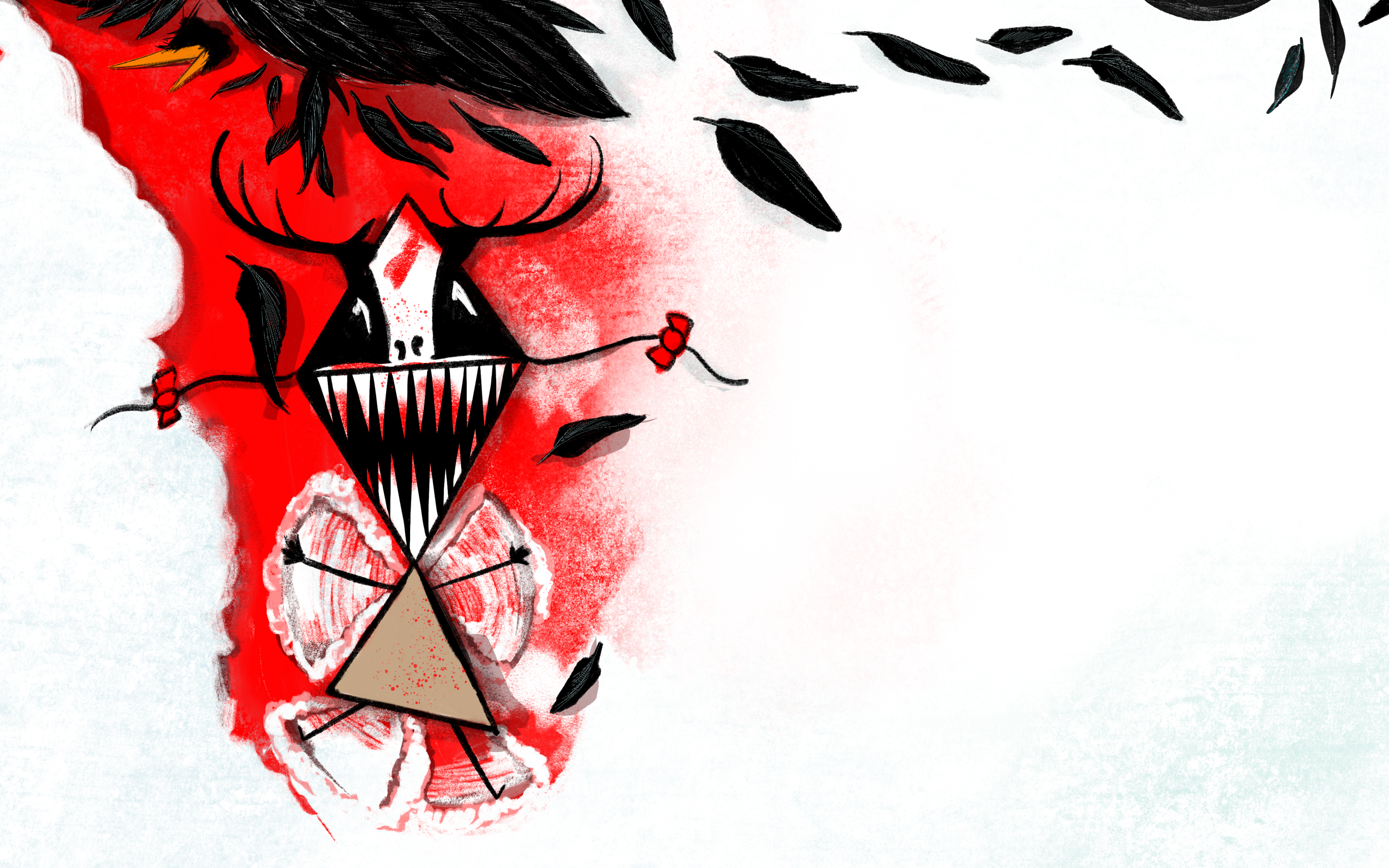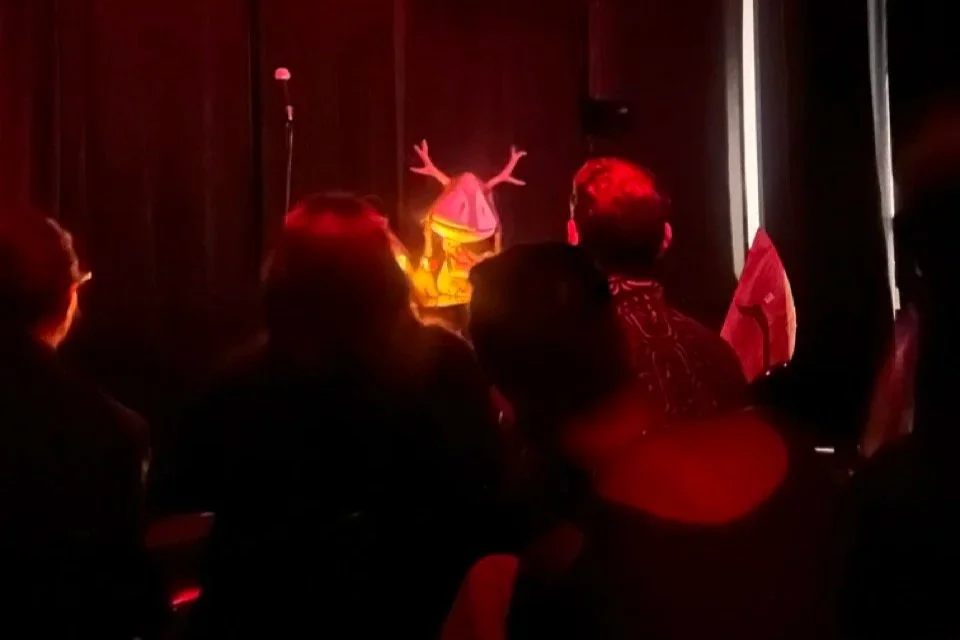ABOUT WENDI
The Wendigo is a mythological creature that originated in Algonquian folklore. It is an embodiment of bottomless hunger, born in the northern forests of the Great Lakes region, in what is now the United States and Canada. A creature shaped by brutal winters and the taboo of cannibalism, it is one of the earliest, uniquely North American monsters, long before there was anything called America.
Equal parts cautionary tale and cultural metaphor, the wendigo stands as a reminder that in the wilderness, it’s not just the cold that can consume you, but the things you let take root inside.
Illustration by Claire Einstein

It remains a powerful metaphor in modern times, inviting us to:
Investigate our relationship with greed, want, consumerism, and all the things we do to fill the empty parts of ourselves.
Run away, very fast, very very fast, run run run, while throwing an authoritative “NOPE” over our shoulder for good measure.
As her name implies, Wendi is a wendigo. Within the pages of an illustrated manuscript, Wendi struggles with balancing her longing for friendship with her desire to devour everything in her path.
As an interactive part of my live shows, she talks with audience members about her struggles with the “Big Empty,” and how they deal with the Big Empty within their own lives (while kinda sorta trying to eat them).
Through both, she welcomes her audience to consider what we continuously sacrifice in order to feel momentarily sated.

One of my favorite explorations of the Wendigo is in Braiding Sweetgrass by Robin Wall Kimmerer, Potawatomi botanist and director of the Center for Native Peoples and the Environment at the State University of New York College of Environmental Science and Forestry. It’s great. Please check it out.
In her book, Kimmerer identifies our modern economic system as a “Windigo Economy,” inventing false scarcity and always taking more than it gives.
“Modern capitalist societies, however richly endowed, dedicate themselves to the proposition of scarcity. Inadequacy of economic means is the first principle of the world’s wealthiest peoples. The shortage is due not to how much material wealth there actually is, but to the way in which it is exchanged or circulated. The market system artificially creates scarcity by blocking the flow between the source and the consumer. Grain may rot in the warehouse while hungry people starve because they cannot pay for it. The result is famine for some and diseases of excess for others. The very earth that sustains us is being destroyed to fuel injustice. An economy that grants personhood to corporations but denies it to the more-than-human beings: this is a Windigo economy.”
Unlike Wendi, who’s still struggling with her cravings, Kimmerer offers a solution:
“We can reclaim our membership in the cultures of gratitude that formed our old relationships with the living earth. Gratitude is a powerful antidote to Windigo psychosis. A deep awareness of the gifts of the earth and of each other is medicine. The practice of gratitude lets us hear the badgering of marketers as the stomach grumblings of a Windigo. It celebrates cultures of regenerative reciprocity, where wealth is understood to be having enough to share and riches are counted in mutually beneficial relationships. Besides, it makes us happy.”
If you can, check out Braiding Sweetgrass. You won’t regret it.
If you’ve made it this far, thanks so much for sharing your time with Wendi. In her own words, you for to be friend*.
*that isn’t necessarily a good thing.**
** we recommend backing away slowly.***
***and then running away fastly.


